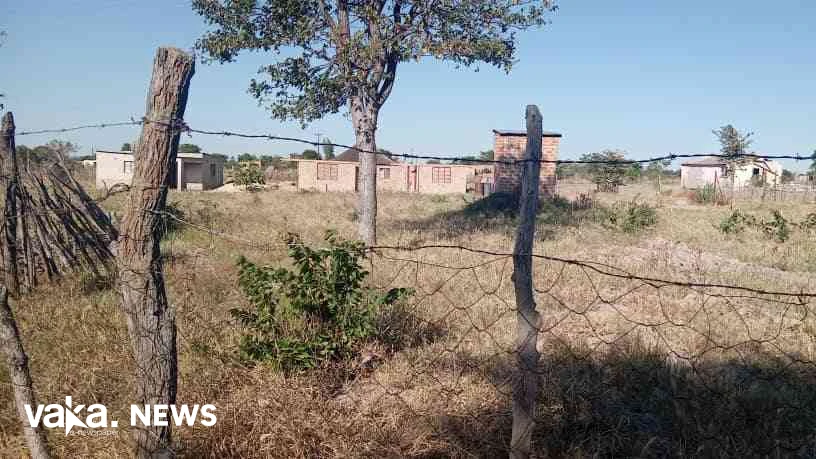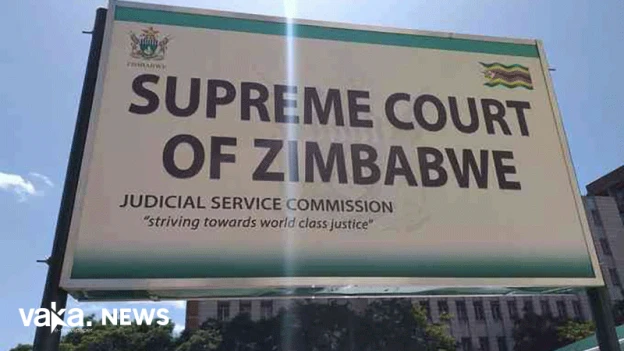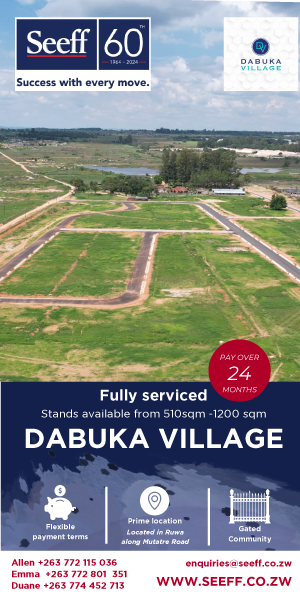Land rush leaves farmers scrambling for pasture
- Category: Real Estate

- By Dion Kajokoto
VUNGU, previously a sprawl of 14 thriving settlements in the Midlands province's Lower Gwelo, has been merged into a single contemporary housing estate. Thatched huts, originally separated by shared fields, have fused to form yards divided by alleys and Mopani tree walls.
Some believe it is a sign of rural development. But for Thabisani Nkala, the village's adored goat herder, Vungu has turned into a disaster. The vast fields, once a luscious smorgasbord for his beloved herd, have become a tangle of concrete and fenced-in regions awaiting building.
Nkala, a guy imbued with the fibrous wisdom of the veld, still owns a mile-wide strip where he watches his goats: beautiful creatures in a variety of browns, blacks, and the rare flash of white. For centuries, his family has farmed goats in the fields, and the animals have become an integral part of their identity.
With the decreasing fields, Nkala's once carefree routine has turned into a daily hustle. He awakens to the bleating of his goats, a familiar alarm clock, and leads them one by one from the pen to the far side of a maize field. His heart aches as he leads them on leashes, their hooves clicking in sync on the unyielding earth.
He no longer spends his mornings watching the goats graze contentedly, their bells playing a calming tune among chirping birds. His mornings now involve a frenzied search for patches of green in his parents' farm.
The people, while sympathetic, are not unfamiliar with the obstacles of progress. Some suggested ideas, proposing that he downsize his herd. However, Nkala has asked that the community leaders find a better solution. These goats represent his family's tradition and provide income for his wife and children. He will not let their numbers dwindle. But he's losing hope.
During our childhood, we would choose grazing spots for our goats, but now it's as if we live in one big village stretching from Mxotshwa to Mdubiwa," Nkala told NewsDay.
"There are no grazing grounds; it appears that everyone has a stand now. I'm selling my goats at a faster rate than I ever have before since there are no grazing areas and I don't see why I should retain them. "We are as good as people who live in cities," he poured out his heart.
"The painful part is that the new people who are assigned stands here are either gold panners or people from outside Lower Gwelo." Some come from Chipinge, Zaka, and Masvingo through family connections on this side. I believe anyone with enough money to bribe the village leaders can find a location to build and live in Lower Gwelo.
"Village leaders are the most corrupt individuals in our community. They can approach gold panners and negotiate land deals because they benefit financially. People who were assigned stands and left 10 years ago without establishing a structure are now returning to find their stands sold to gold panners and anyone who can pay our village leaders.
“Domestic animals like goats, donkeys and cows are now difficult to keep due to unavailability of grazing land,” Nkala narrated, pointing at some huts dotted across Gwenjani River.
Chief Bunina Chisadza, born Jabulani Madubeko Moyo, stated that Vungu district had become one large village. He stated that it is difficult to create a balance between urbanisation and the preservation of peasant farming, as well as providing appropriate grazing land for cattle.
"I agree that some of Lower Gwelo's grazing land has been converted into residential developments. This is because to population growth, and we have no choice but to provide residential stands to our youngsters. This is especially problematic for people who have goats, cows, and donkeys and are unable to obtain grazing land. Lower Gwelo now appears to be reserved exclusively for residential stands.
"It has become extremely difficult to strike a balance between increasing population and preserving grazing land," he said.
Brown Ndlovu, a Zanu PF Vungu Member of Parliament, stated that urban-to-rural migration was a key reason of excessive residential stand allocation, leaving cattle farmers stranded and hunting for grazing space.
Alex Magura, chief executive officer of Vungu Rural District Council, stated that there is a significant demand for land in rural regions, which has contributed to the intrusion into grazing territory.
"The development is an indication of overcrowding, which is common in many rural communities across Zimbabwe. "The population is growing, and there is an ongoing demand for land, which is a finite resource," Magura explained.
"The need for land has resulted in encroachment on grazing land. Combined with an increase in animal population, this has put a lot of strain on the land. In my opinion, the long-term approach is to decongest the communal places.
"This can happen through a general increase in employment opportunities in the national economy and a change in the view that all families should have a piece of land."
However, Mugaru recommended farmers to adapt to contemporary farming practices.
"There is also a need for a reorganization of the rural economy to take into account the reality of the situation, which do not allow for large tracts of land.
Agriculture should be more intensive rather than extensive. Livestock farming models must also adapt; the existing paradigm is rapidly disappearing as land pressures increase," he noted.
Venencia Magama, a Citizen Coalition for Change (CCC) Councillor in Ward 8, yearns for the bygone age of expansive green fields studded with joyful domestic animals. She stated that the arrival of new residents, while unquestionably helpful, has put a significant burden on the rural landscape.
Magama recalls the days of broad, open fields stretching from Mxotshwa to Mdubiwa hamlet. Now, those fields are taken by dwellings, leaving smallholder herders with dwindling pastures for their livestock.
"What I know is that grazing pasture was once plentiful, particularly near the Gweru River. It was a farming area, with each family having its own field. People have stopped farming since the land is being used for residential purposes. I understand that the population has grown and that the land cannot be expanded. Ward 8 is rapidly increasing as the population expands," she stated, her voice softened by fear.






